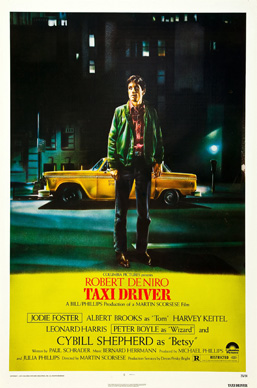
Taxi Driver is a 1976 American neo-noir psychological thriller film directed by Martin Scorsese, written by Paul Schrader, and starring Robert De Niro, Jodie Foster, Cybill Shepherd, Harvey Keitel, Peter Boyle, Leonard Harris, and Albert Brooks. Set in a morally decaying New York City following the Vietnam War, the film follows Travis Bickle, a veteran and taxi driver, and his deteriorating mental state as he works nights in the city.
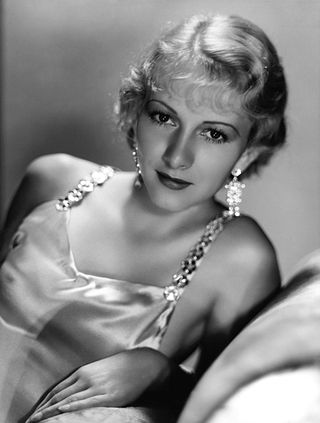
Karen Morley was an American film actress.

Edwin Eugene Lockhart was a Canadian-American character actor, playwright, singer and lyricist. He appeared in over 300 films, and received an Academy Award nomination for Best Supporting Actor for his role as Regis in Algiers (1938), the American remake of Pepe le Moko.
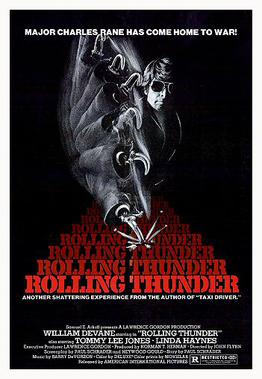
Rolling Thunder is a 1977 American psychological thriller film directed by John Flynn, from a screenplay by Paul Schrader and Heywood Gould, based on a story by Schrader. It was produced by Norman T. Herman, with Lawrence Gordon as executive producer. The film stars William Devane alongside Tommy Lee Jones, Linda Haynes, James Best, Dabney Coleman, and Luke Askew in supporting roles.
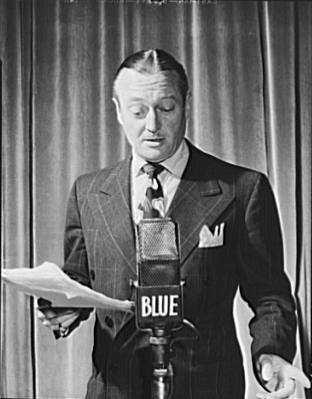
Edmund Sherbourne Lowe was an American actor. His formative experience began in vaudeville and silent film.

John Loder was established as a British film actor in Germany and Britain before migrating to the United States in 1928 for work in the new talkies. He worked in Hollywood for two periods, becoming an American citizen in 1947. After living also in Argentina, he became a naturalized British (Argentinian?) citizen in 1959.

Black Fury is a 1935 American crime film directed by Michael Curtiz, and starring Paul Muni, Karen Morley, and William Gargan. It was adapted by Abem Finkel and Carl Erickson from the short story "Jan Volkanik" by Judge Michael A. Musmanno, and the play Bohunk by Harry R. Irving. The plot is based on a historic incident during a Pennsylvania walk-out in 1929, in which John Barkowski, a striking coal miner, was beaten to death by private company police.

Robert O'Connor, also known professionally as Robert Emmett O'Connor and Robert E. O'Connor was an Irish-American actor. He had a lengthy career as a stage actor on Broadway and in vaudeville from 1905-1931; using the stage name Robert O'Connor in both musicals and plays. After transitioning to film, he also used the names Robert Emmett O'Connor or Robert E. O'Connor for his screen credits. He appeared in more than 200 films between 1919 and 1950; specializing in portraying policemen. He is probably best remembered as the warmhearted bootlegger Paddy Ryan in The Public Enemy (1931) and as police Sergeant Henderson pursuing the Marx Brothers in A Night at the Opera (1935). He also appeared as Jonesy in Billy Wilder's 1950 film Sunset Boulevard. He also made an appearance at the very beginning and very end of the Metro-Goldwyn-Mayer cartoon short Who Killed Who? (1943).
Forrester Harvey was an Irish film actor.

William Grigs Atkinson, known professionally as Paul Cavanagh, was an English film and stage actor. He appeared in more than 100 films between 1928 and 1959.
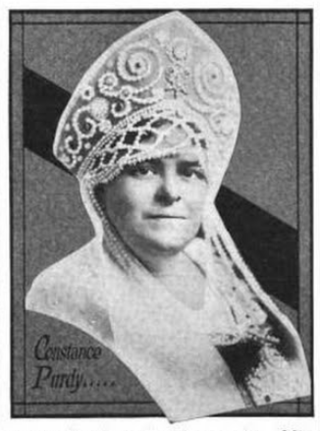
Constance Purdy was an American film actress and classical music performer.
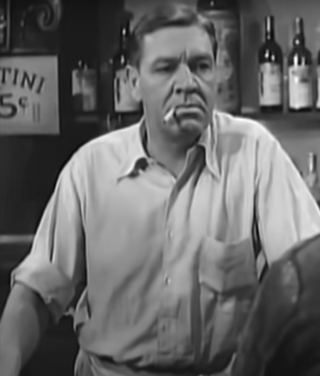
Max Wagner was a Mexican-born American film actor who specialized in playing small parts such as thugs, gangsters, sailors, henchmen, bodyguards, cab drivers and moving men, appearing more than 400 films in his career, most without receiving screen credit. In 1927, he was a leading witness in the well-publicized manslaughter trials of actor Paul Kelly and actress/screenwriter Dorothy Mackaye.

Law and Disorder is a 1974 American comedy-drama film directed by Ivan Passer, starring Carroll O'Connor, Ernest Borgnine, Ann Wedgeworth and Karen Black.
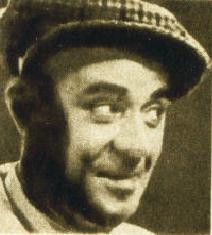
George Carney was a British comedian and film actor.

That Funny Feeling is a 1965 American romantic comedy film directed by Richard Thorpe and starring Sandra Dee, Bobby Darin, and Donald O'Connor.

The Garden Murder Case is a 1936 American mystery drama film, the tenth in the Philo Vance film series, following after 1935's The Casino Murder Case. In this entry to the series, Vance is played by Edmund Lowe, and Virginia Bruce co-stars. The film also features Benita Hume, Douglas Walton, and Nat Pendleton. It was directed by Edwin L. Marin from a screenplay by Bertram Millhauser based on the 1935 book of the same name by S. S. Van Dine.

Espionage is a 1937 American Proto-Noir, spy-film, adventure, drama, romance, comedy thriller film directed by Kurt Neumann and written by Leonard Lee, Ainsworth Morgan and Manuel Seff, based on the 1935 West End play Espionage by Walter C. Hackett. The film stars Edmund Lowe, Madge Evans, Paul Lukas, Ketti Gallian, Richard "Skeets" Gallagher, and Frank Reicher. The film was released February 26, 1937, by Metro-Goldwyn-Mayer.

Frank Marlowe, also known as Frank Riggi and Frank Marlo, was an American character actor from the 1930s until the 1960s. During Marlowe's 30-year career he would appear in over 200 feature films, as well as dozens of television shows.
Little Ladies of the Night is a 1977 American made-for-television drama film starring David Soul, Louis Gossett Jr. and Linda Purl. When it was broadcast, it became the highest-rated TV movie of all time.
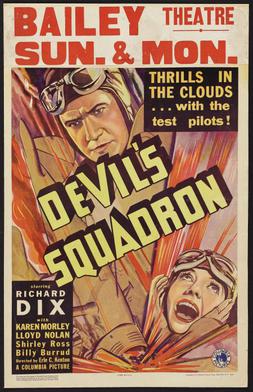
Devil's Squadron is a 1936 American drama film directed by Erle C. Kenton and starring Richard Dix, Karen Morley and Lloyd Nolan. The following written prologue appears after the opening credits: "This picture is dedicated to the test pilots....those men who knowingly face death every time they leave the ground in an untried airplane. We never hear of these men, yet on their courage depends the future of aviation."

















